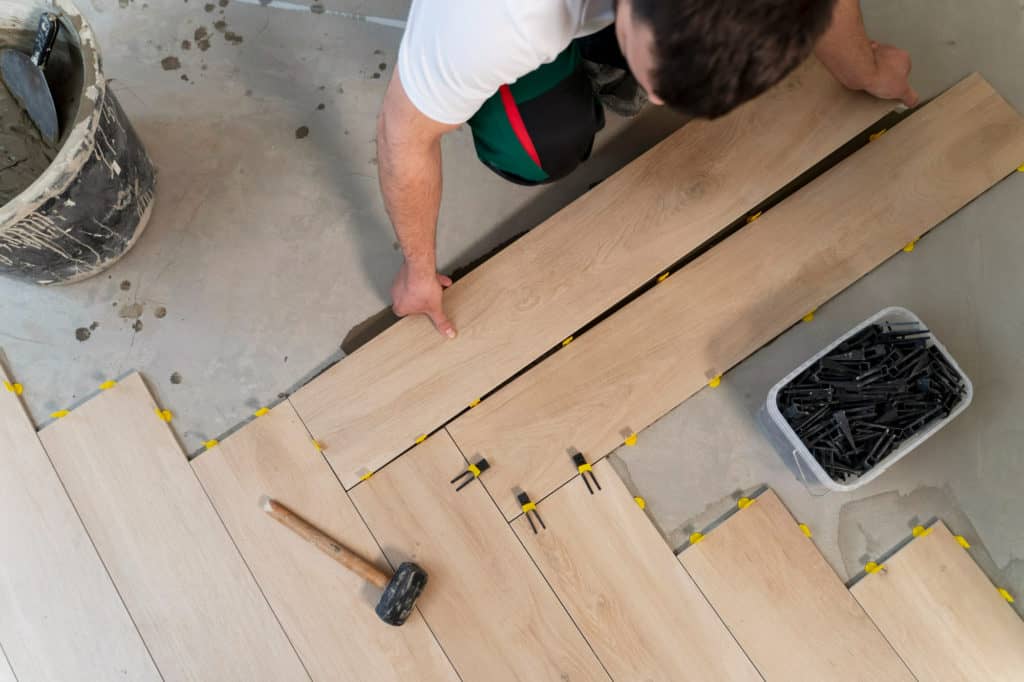If you’re in the market for a contractor to work on your home project, it’s important to ask the right questions. General contractors are skilled professionals who can help with just about anything from fixing a leaky faucet to installing new flooring. Here are eight things you should ask when hiring one.

Table of Contents
What are the different types of contracts a contractor can offer?
Some common contracts include fixed-price, cost-plus, and time and material contracts. A general contractor may also offer subcontracting services.
Fixed-price contracts are the simplest type of contract. The contractor agrees to provide a certain amount of work for a set price. This type of contract is good for small projects that don’t require a lot of negotiation or changes.
Cost-plus contracts involve adding a margin to the original price tag in order to cover the contractor’s costs. The contractor is paid whatever the total cost of the project is, plus a predetermined percentage. This type of contract is good for projects that could have unexpected costs, or where the contractor has extra overhead costs.
Time and material contracts are similar to cost-plus contracts, but they also allow the contractor to add additional hours or materials to the project. This type of contract is good for large projects that may take longer than expected to complete.
Subcontracting services allow contractors to outsource specific parts of the project. This can save them time and money, but it can also lead to less control over the finished product.
What is the difference between a general contract and a specific contract?
A general contractor is a type of contract that is used for projects that are not limited in scope. This means that the contractor can bid on and win any project that is put out there.
A specific contract, on the other hand, is a type of contract that is used for projects that have a certain, predetermined scope. The contractor is only allowed to bid on projects that fall within the specified parameters. This can be helpful if you know exactly what you need and don’t want to risk bidding on a project that isn’t right for you.
What is a modified completion date clause?
A modified completion date clause is a provision in a contract that allows one party to delay or extend the completion of the contract without penalty.
This clause can be useful if you need more time to complete your project. You can negotiate a modified completion date clause in your contract, and the other party will agree to delay or extend the completion date without penalty. This will give you more time to finish your project on time, with no penalties attached.
What is a material change clause?
A material change clause is a clause in a contract that allows for the parties to agree to changes to the terms of the contract if certain conditions are met. This can be helpful if you want to make sure that your contract will be valid and meet your needs when changes occur in the future.
Some common examples of material changes would be changes to the price, the location of the project, or the type of materials used.
What is a builder’s bill of lading?
A builder’s bill of lading is a document that is used to track the movement of goods during construction. It is important because it can help to prevent fraud and ensure that the contractor is paid for the work that was completed.
A builder’s bill of lading should include the following information: the name of the contractor, the name of the project, the date(s) on which the work was performed, and the total cost of the project. It should also list any materials that were used in the project, their destination, and their weight.
A builder’s bill of lading can also be used to prove that goods were delivered to their intended destination. If there is any dispute about whether goods were delivered or not, a copy of the builder’s bill of lading can be provided to authorities to help resolve the issue.
What is an escrow account?
This account is used to hold payments that are made during the construction process. The purpose of an escrow account is to prevent disputes between the contractor and the client. If there are any disagreements about payments, the money can be transferred immediately to the escrow account. This way, both parties can avoid any potential conflicts.
Escrow accounts are important for two reasons: first, they help to keep the money flowing during construction; and second, they help to prevent disputes between the contractor and the client.
Photo by partyshock & freepik.com